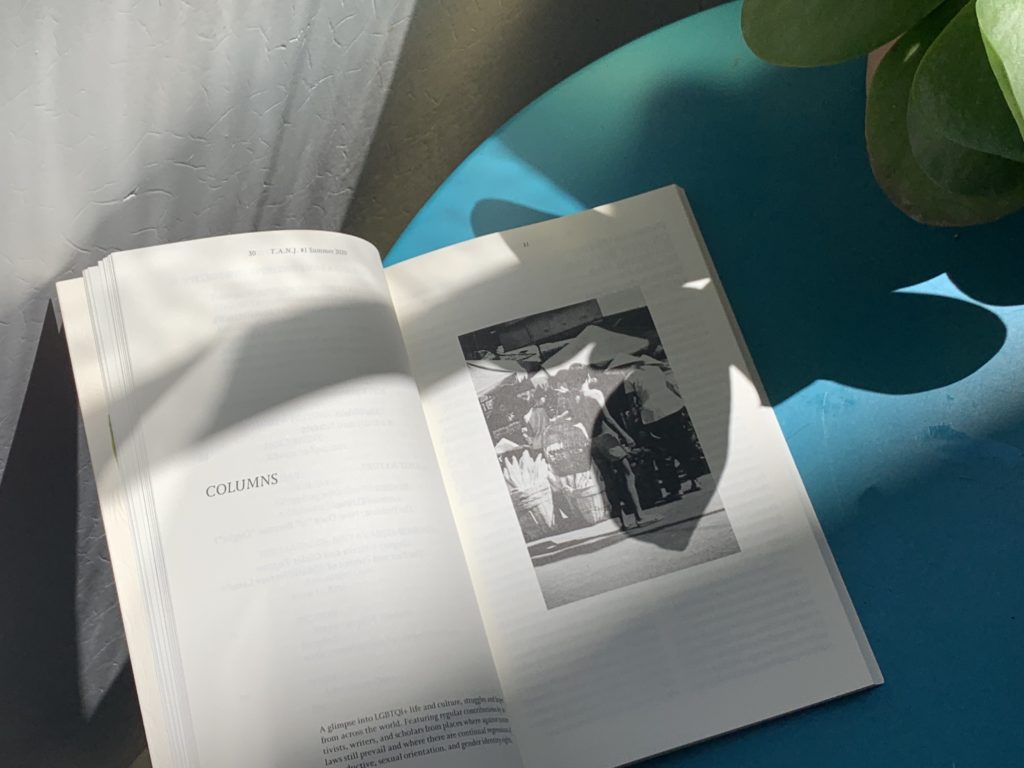Of Islamic Laws and the Colonial Past: The Conundrums Faced by the Malaysian LGBT Community

This text was one of the columns of The Against Nature Journal (T.A.N.J.) issue #1, published by Council in 2020.
In September 2018, Malaysia made news for caning two women for attempting musahaqah (lesbian sex). The women were charged under Section 30 of the Syariah Criminal Offences Enactment 2001, read in conjunction with Section 59 (1) of the same enactment. They were ned US$800 each and caned six times in front of around 150 people in the court of the conservative state of Terengganu.
The caning was intended to humiliate. LGBT activist and friend Thilaga Sulathireh, from the group Justice for Sisters, said she wept witnessing the event. As someone who identifies as lesbian, I was shocked by the court decision, along with my fellow community of queer women. Our community stays away from provoking the authorities, meeting only here and there in secret. Many scholars state that lesbians have not posed much of a threat historically, in comparison to homosexual men.
Malaysia has two legal systems: one secular, inherited from British colonialism, and the other is a Syariah system which governs Muslims in matters such as marriage, divorce, and alimony. Both systems discriminate against LGBT people.
Malaysia’s preoccupation with our community is not new. In 2008, the National Fatwa Council issued a religious edict against pengkids (a degrading term for women who dress like men and who may or may not have sexual desires for other women). Gay men have been sent to prison. Transgender women are routinely murdered. And online harassment of Malaysian LGBT people persists.
Malaysia is considered a “moderate Muslim nation” by many, but it has seen a rise of Islamic fundamentalism since the 1970s. Most Muslims believe that the community of Prophet Lot was condemned by God for practicing homosexuality, as described in the Qur’an. Sodomy is today outlawed under Section 377 of the Malaysian Penal Code, which was first introduced by British colonial rulers. The most famous use of this law was in 1998 when Malaysia’s then prime minister, Mahathir Mohamad, sacked his deputy Anwar Ibrahim on allegations of sodomy in an attempt to destroy his career.
Yet, despite popular misconceptions, Southeast Asia, the Malay Archipelago included, has a rich history of gender and sexual diversity. Researcher Sarah Ngu asserts that Malay rulers as far back as the fifteenth century appointed sida- sida in their palaces. These androgynous courtiers had sex with both genders, and their role was to protect the women of the court.
Regarding the recent caning, local feminist group Sisters in Islam released a statement: “Qur’anic teachings emphasize repentance, forgiveness, and personal transformation. God is forgiving and merciful.” While it may not be approving of homosexuality itself, their statement is radical. Such progressive voices are rare in Malaysia because many Muslims believe that human rights, liberalism, and pluralism go against Islam. It may take years, generations even, for Malaysian LGBT people to get their rights, but there is a glimmer of hope. I for one hope that as Malaysian society progresses, so do the rights for our marginalized community.
Niza is a feminist journalist and activist from Kuala Lumpur, Malaysia. She graduated with a degree in journalism in 2011 and has twelve years of work experience in matters of civil society.
TEXT BY
Niza
This text was part of The Against Nature Journal (T.A.N.J.) issue #1, published by Council in 2020.
Top image : T.A.N.J #1, Columns, 2020, Council.
T.A.N.J. #1
Articles
Thinking Through Religion
— Aimar Arriola
How to Binj
— Amatesiro Dore
A queer ‘we’?
— Linn Marie Tonstad
Columns
Pride in Jesus Church Service: Bridging the Divide in Barbados and the Caribbean
— Donnya Piggott
Antigender Agendas as Colonial Reestablishments in Brazil and Abya Yala
— Viviane Vergueiro
A Church Coalition’s Rainbow-Inclusion Efforts in India
— Pawan Dhall
The Trial of Kenya’s LGBT Community in the Court of Public Opinion
— Kari Mugo
LGBTQI of the Lebanese Revolution Don’t Need Permission
— Dayna Ash
Of Islamic Laws and the Colonial Past: The Conundrums Faced by the Malaysian LGBT Community
— Niza
Love in the Time of Corona
— Naoufal Bouzid
A Trojan Horse for Warsaw’s Castle
— Eliel Jones
Events
แปร่ง // praeng
– a project by Wirunwan Victoria Pitaktong & Jeanne Penjan Lassus, Bangkok, 2020
Introducing T.A.N.J #1
– online conversation with Vivek Divan, Kari Mugo, Linn Marie Tonstad & the editors